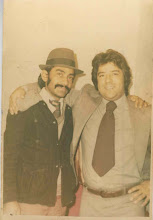I am of Afghan origin, but Germany has been a new familiar home for many years now. This is how fast you can describe the local references of my life so far. But behind that, a constant search for identity is lurking, a constant alignment of affiliations and differences. This is a feeling I share with a lot of people from my generation, especially with those that were born in Afghanistan like me but had to leave the country when they were still young.
I was surprised to find this „search“ for origin even in Kabul, in the country itself, especially in the young generation that has been born and raised during the war. Both sides live with a vague idea of their native country in times of peace.
A first small idea about my film project came up during my first trip. A second trip followed last summer, at around Ahmad Zahir’s day of death. I wanted to find out why I was so driven to make this movie. It was not before the last day of my trip when I had an idea where this driving force will lead me to.
Before I started my research trip, I had a lot of fears. How will people react when a young Afghan who has left her native country at the age of five comes back to make a movie about the most popular and most loved musician of the country? I was welcomed with open doors, open hearts, and people treated me with respect. I could share emotional, sad, tearful moments but also heartfelt and happy ones.
---
TRAVEL JOURNAL, 2008
Today is the day we leave, we will fly back early in the evening. We have one last meeting with Manzur and the other young musicians we have happened to meet in Babur’s garden. They organized a small concert for us. We met them in park of the Hotel Intercontinental in a small traditional tea house on a green slope. Wooden platforms were covered with carpets and cushions. We were surrounded by guests who were drinking their tea and ate sweet pastry under shady trees that protect them from the midday heat. Instruments were unpacked and tuned. In the next two hours, we dove into another world. We were no longer in the Afghanistan that is scarred by poverty and war. We were in a peaceful future where there’s room for music and singing again. A generation of young people sat in front of us and showed us their new world in which they continue an old musical tradition.
---
At that moment right there it became clear to me that I don’t want to make a movie that only portrays Ahmad Zahir. I want the story to go beyond that. I want to find out why to this day Ahmad Zahir is immortal. If you walk around in Kabul, the sound of his music is heard in every corner. He lives on in the heart and souls of many Afghans of all ages, in Afghanistan and all over the Afghan Diaspora. He is a uniting factor for the different ethnic groups of this country that is destroyed by war, a moment of peace, a glance into a shared past.
Another decision I made was not to shoot exclusively in Kabul. A big part of “Afghanistan” no longer lives in this country. I am part of the Diaspora. We, too, ensure that the memory of Ahmad Zahir lives on. He gives us a chance to share a common interest. A „common interest“ that is part of our identity.
During my first stage of research I visited a number of international forums, fan sites and blog sites about Zahir. These sites mainly deal with interpretations or translations of his song texts. But many of his fans also use them to communicate their admiration for Zahir and his music to others. During this time I found some interesting statements. Rahima Akhi wrote, “Ahmad Zahir is always alive in our hearts. To hear him singing makes you feel alive.” Said Bashir wrote, “Ahmad Zahir is still living in people’s hearts and will rule their hearts for more centuries...”
I share this affection with all the fans in Afghanistan and the Afghan Diaspora all over the world and I would like to use this film to tell the world about it.
The German public almost exclusively associates Afghanistan with backwardness, violence and need of help. The country is perceived as very strange. I want to show a part of the country’s culture that also belongs to the country and remained intact. This cultural heritage holds much strength and hope for Afghanistan. Culture and music offer points of contact that make it easy for a European audience to appreciate this foreign country.
The movie builds a bridge over the rift that politics, lust for power and war have caused. “Kabul’s Nightingale” shows another side of the country that has hardly been noticed so far.

Keine Kommentare:
Kommentar veröffentlichen